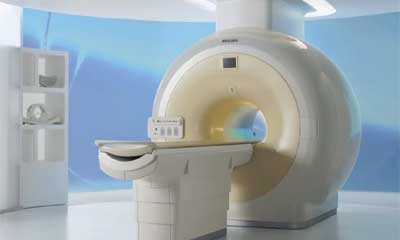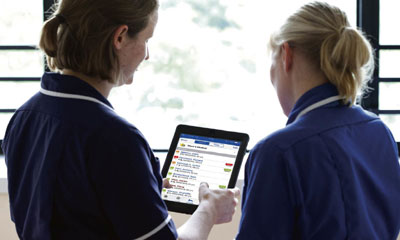If you have any departmental or Trust news you'd like to share, please get in touch.
- Details
 This new NHS scheme delivers improvements in patient care by cutting bureaucracy for clinicians and other innovators and encouraging uptake through the NHS.
This new NHS scheme delivers improvements in patient care by cutting bureaucracy for clinicians and other innovators and encouraging uptake through the NHS.
NHS England has also announced a nationally backed trial of a technology to cut missed hospital appointments, ‘DrDoctor’, as well as a further £1.5 million to pump prime the spread of innovations.
Read more: Heart patients benefit from Technology Innovation
- Details
 TV doctors Rosemary Leonard, Ellie Cannon and Sara Kayat will return to the classroom to promote careers in the NHS and encourage young people to take up science, technology, engineering and maths (STEM) subjects.
TV doctors Rosemary Leonard, Ellie Cannon and Sara Kayat will return to the classroom to promote careers in the NHS and encourage young people to take up science, technology, engineering and maths (STEM) subjects.
As part of plans to mark the NHS’s 70th birthday, the media medics and other high-profile speakers have volunteered their time to visit secondary schools and colleges in England this summer and help recruit the workforce of the future.
They will also talk to pupils about the importance of studying STEM subjects which are needed to take up many of the key roles in the NHS including dentists, doctors, nurses, midwives and paramedics as well as scientific and engineering roles outside the health service.
- Details
 The NHS has adopted new scanning technology which it claims can slash diagnosis times for prostate cancer, while also reducing the risk of sepsis.
The NHS has adopted new scanning technology which it claims can slash diagnosis times for prostate cancer, while also reducing the risk of sepsis.
Using multi-parametric MRI (mpMRI) scanning technology – which offer a superior-quality image to current scanners – men can have a scan, receive their results and have any necessary biopsy in a day, rather than over multiple outpatient visits spanning four to six weeks via the traditional method.
The improved quality of the scans makes targeting growths on the prostate far more accurate. Currently, a biopsy may require a dozen samples having to be taken in order to locate suspect growths on the prostate.
Read more: Multi-parametric MRI to slash prostate cancer diagnosis times
- Details
 A competition to identify a second wave of test beds will allow organisations to apply for a share of up to £6 million in funding.
A competition to identify a second wave of test beds will allow organisations to apply for a share of up to £6 million in funding.
NHS England and the Office for Life Sciences have launched a new competition to identify a second wave of ‘test beds’. The test bed programme is a joint programme between NHS England and government. It involves the NHS working with innovators using technology to address complex issues facing patients and the health service.
The new competition will allow businesses and NHS organisations to apply for a share of up to £6 million. This funding can be used to evaluate different combinations of innovations from small and large organisations to address a locally identified clinical challenge.
Read more: Competition allows organisations to apply for share of up to £6 million.
- Details
 A man has had his chest rebuilt using 3D printing technology during an operation to remove a large tumour.
A man has had his chest rebuilt using 3D printing technology during an operation to remove a large tumour.
The prosthesis was inserted into Peter Maggs' chest after he had three ribs and half his breastbone removed.
The tumour had grown to around the size of a tennis ball, and the procedure left an extensive defect in the 71-year-old's chest.
The eight-hour operation was carried out by surgeons at Morriston Hospital, Swansea.
Surgeons would traditionally have rebuilt it with a special cement prosthesis.
Read more: Patient's chest rebuilt with 3D printing technology


